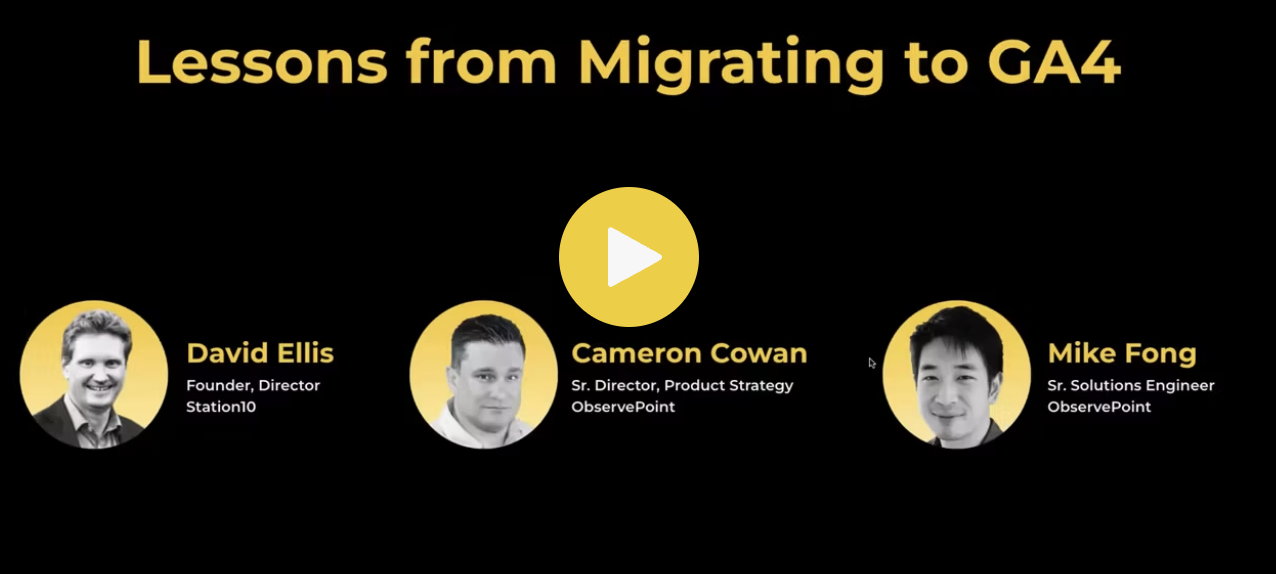Lessons learnt from migrating to GA4

Last week, I was lucky enough to be invited onto Data Chat Live, with Cameron Cowan and Mike Fong from Accutics, good friends and partners of Station10. .
It was also a wide-ranging discussion on some of the challenges that digital data leaders face at the moment.
One challenge many are facing is what to do about the looming GA4 deadline. There are many more options than there have been previously in this space, and so businesses should take the opportunity to examine their requirements and establish exactly what the right solution for them is. For many, this may well mean they stick with GA (although there will now be costs associated with this, if you want to store data for longer than 14 months), but there are alternative options available, and we discussed these in Data Chat Live.
If you are interested, it’s worth watching.
Perhaps more importantly, these represent real opportunities to do more with the data that you have. Rather than thinking of GA as an analytics tool, teams should think of it as a “starter kit” for a Customer Data Platform, where you can share data (through tools like Big Query and GCP) to enrich the insights and the actions that you can take on the back of it. This will enable you to deliver tangible value to the business and deliver on broader use cases, which will also help to justify the additional expenditure. And this applies whether you use GA, or any of the other tools available.
Which brought us to the demonstration of value. One of the challenges that data leaders have is to prove the value of their data assets, especially during a period of economic turbulence; why should you continue to spend money when there may be other priorities instead? The issue is that data is often an enabler to value being generated in other areas; it’s relatively unusual to generate value directly from the data itself. So, if other areas can claim the benefit, how do you ensure that you apportion the data in the right way.
Click here to download our Data Value Framework – FREE
At Station10, one way we do this is through a data value framework. In our experience, data delivers identifiable types of value across all the projects we have worked on, and so it’s possible to classify how particular analytics activities and projects can deliver value. This classification helps to show to your stakeholders how value is generated, and on the back of that, you can start to establish and quantify what the specific value is, although that normally requires more detailed analysis, especially if the value is generated elsewhere.
We shared our high-level value framework, which enables you to classify the data value types to get this process started. If anyone is interested in using such a framework, please get in touch and we will share the template.
It was great to be on Data Chat Live; I’ll definitely be tuning in again.


